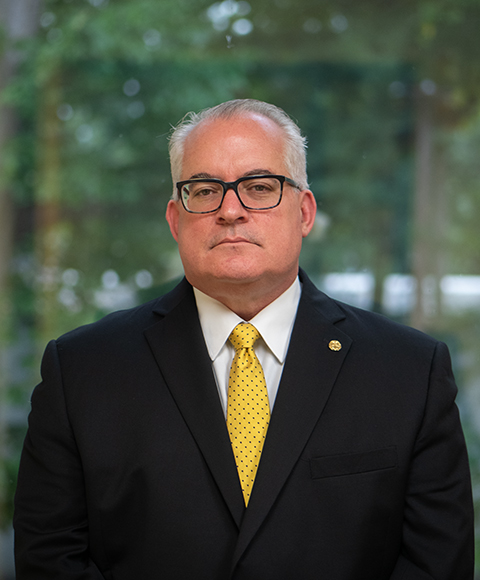INSIDE THE 
NEWS + ADVICE
Will Security Clearance Guideline L Outside Activities Lead to a Security Review?

Not all security clearance concerns are equal. National security attorneys recognize trends reviewing large volumes of federal government challenges to employee, contractor, and service members gaining or keeping security clearances.
Guideline E, Personal Conduct and Guideline J, Criminal Conduct are the jokers of the card deck. They are not always used for specific problems, but for general assessments of a clearance holder’s character and integrity. Guideline H, Drug and Substance Misuse is the most obviously triggered guideline. If you smoke pot, that would be the specific allegation. The general issue is whether the employee is a rule-breaker because smoking marijuana is against federal law; hence integrity and character are under review, generally, through a triggered Guideline E, Personal Conduct. So, the clearance holder or applicant would end up answering for both Guideline H, Drug and Substance Misuse and Guideline E, Personal Conduct triggers.
Some guidelines are more obscure. Guideline A, Allegiance to the United States is rarely invoked by federal security clearance adjudicators in a Statement of Reasons justifying denial or revocation of a clearance. But even Guideline A has seen a revival following the January 6th attack on the Capitol. The prevalence of bad debt and drug use among Americans broadly makes Guidelines F, Financial Considerations and Guideline H, Drug and Substance Misuse very common in security reviews.
Some guidelines show class or generational distinctions. Guideline G, Alcohol Consumption tends to affect older and lower-ranking federal employees, reflecting possible generational and class differences regarding the consumption of alcohol and its impact on vehicular driving and domestic abuse. Conversely, Guideline M, Misuse of Information Systems tends to entrap younger employees, as older Feds may struggle to access copyrighted material, let alone download the same.
Then there are the two very specific guidelines, Guideline K, Mishandling of Protected Information and Guideline L, Outside Activities. Of the 180 or so Statement of Reason responses authored since 2018 by one of this article’s authors Dan Meyer, only one contained a Guideline L, Outside Activities concern. Mr. Meyer has advised many more employees on reporting Guideline L issues under Security Executive Agent Directive (SEAD) 3, the regulation requiring clearance holders to report security concerns. But actual Guideline L, Outside Activities proceedings are rare.
Guideline K, Mishandling Protected Information is more common, arising in about seven of Mr. Meyer’s cases since 2018. That makes Outside Activities the second rarest guideline to appear in Statements of Reason; system-wide throughout the community of security clearances located primarily in the Executive branch, the guideline ranks right behind Allegiance to the United States. And for good reason: most national security and defense professionals, or “cadres,” do not go back and forth regularly between activities “inside” and “outside” the Top Secret circle of trust. Hold a government job? Hold a Top Secret-level clearance? Doing accounting work on the side, even on your own time? If one of your clients is a foreign national, you need to report Guideline B, Foreign Influence and Guideline L, Outside Activities, using SEAD-3. You are going back and forth. If you are handling classified information, your reporting criteria under SEAD-3 becomes much more consequential at the Top Secret level and in the rarified world of the 17 Intelligence Community Elements. If you join the CIA, your life will have to change. Maybe you can still teach Sunday school, but bar-hopping embassy socials on Massachusetts Avenue is a bad idea. You have to report all those soiree contacts with Foreign Nationals. And if a Facebook picture of your beery face ends up in Security’s in-box and you have not reported, get ready for a Statement of Reasons.
When those holding eligibility for access to classified information do straddle that line between the classified and unclassified worlds, they run the risk of being investigated by their company or the federal agency’s Office of Security. Security typically becomes concerned when there is a lesser conduct issue compounded by the special circumstances presented by, for instance, an intelligence community employee with unclassified overt duties and responsibilities including access to open-source media. Clearance applicants or holders at all levels facing Guideline L, Outside Activities reporting requirements should seek additional guidance from their supervisor regarding the special concerns presented by being at the liminal edge of the circle of trust. Most Security Offices offered limited guidance on SEAD-3 reporting. This requires employees to delineate their respective private and professional roles in a manner they think appropriate, which can lead to mistakes.
What principles guide Guideline L, Outside Activities analysis? First, we look for a conflict of interest with an individual’s security responsibilities that could create an increased risk of unauthorized disclosure of classified information. Does the outside activity involve the types of knowledge or data which are classified in the individual’s employment context? If you hold a Cyber Defense position at the Department of Defense, volunteering at the Electronic Freedom Foundation might risk a security review. Are you a member of the Armed Services or National Guard? Joining a group protesting on the steps of the U.S. Capitol might risk a security review. Adjudicators look for an applicant’s demonstrated loyalties and dedicated commitments to protecting U.S. security interests. This will outweigh any potential conflicts an applicant could confront while holding a security clearance. Once the conflict is identified, termination of the relationship is a strong mitigating factor. For those with academic, educational, or university ties to Enemies of the State, a common-sense analysis dictates that public and routine speaking engagements are functionally equivalent to a foreign entity purchasing a book, curriculum, taped lecture series, or online course. Publicly available information does not present a security concern. Additionally, if the outside activities are at the behest of the United States Government, mitigation is complete.
As with all security questions, the well-studied professional (or “cadre”), contractor or service member clearance holder is safest in the circle of trust. Being studied-up on the Guidelines is the best way to stay in good graces with Security. Guideline L, Outside Activities does afford some latitude, but it is a latitude clearance holders create in their own affairs. Relying on your cubicle mate’s interpretation of the Guidelines or rumors of why a co-worker was let go is not the same as being studied up on the guidelines. Outside Activities such as membership in a cultural group tied to an Embassy, volunteering at a non-profit providing aid to foreign nationals, or engaging in club activities which trigger other Guidelines (such as illegally downloading music from the web) may lead to security reviews. Take positive control of your security status—your career may one day depend on it.
Find more articles about safeguarding your security clearance here.
Evan Ulman is a Legal Assistant at Tully Rinckey PLLC’s Washington, D.C. office. He is an honors graduate of Political Science from the University of Washington, Seattle. He contributed to the research and writing of this article.
This entry was posted on Monday, March 28, 2022 7:26 pm
